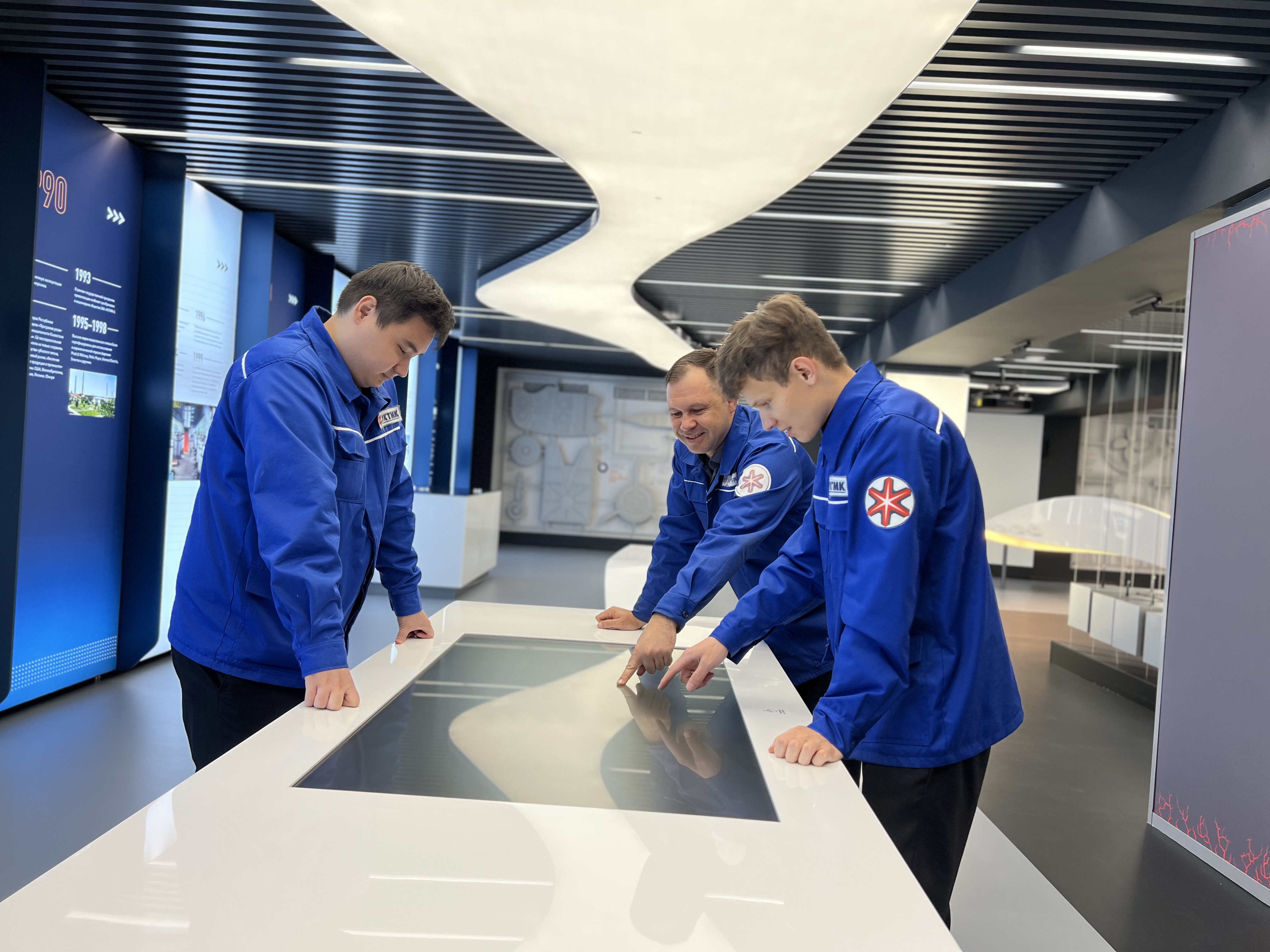NEWS
Being modern in the 21st century doesn't mean keeping up with the times, it means staying ahead of them. This is exactly the goal set by UKTMK JSC, opening a new stage of digital transformation. The Plant has established a department for the development and maintenance of artificial intelligence.
Until 10-15 years ago, the term "artificial intelligence" was found only in fiction and highly specialized scientific and technical publications. Today, its implementation is becoming a necessity for large-scale industries.
The beginning for the formation of a new direction was the initiative of the President of JSC UKTMK, Asem Tlekovna Mamutova. The decision to create an artificial intelligence department was a logical step in implementing the overall strategy of digital transformation and increasing the company's efficiency through the introduction of modern technologies. The main task is not just to follow trends, but to set them.
Alexander Bragin was entrusted to lead the new division, a man who sees opportunities rather than difficulties in new challenges. He has already completed successful projects to automate the production of workshop No. 3 and implement an information security system.
"I'm one of those people who can't do the same thing for more than three years - there's a need to explore new areas, take on complex, ambitious projects that no one has ever implemented before," admits Alexander Bragin.
Today, the department works flexibly and efficiently, adapting to the required tasks.
The team includes a data specialist, an infrastructure specialist, and a technology engineer. They also select a specialist for the position of an economic analystEach of the department's employees has a wealth of knowledge and understands production processes firsthand. Projects do not start in classrooms, but "on the ground", next to machines and melting furnaces during work shifts.
The main goal of the department's work is to free people from routine tasks and give them the opportunity to focus on key decisions. AI algorithms analyze large amounts of information, identify patterns, and automatically generate documents and reports faster and more accurately than manually.
Two areas of the department's work have already been approved: the creation of a machine vision system in workshop No. 12 for monitoring melt discharge and an AI assistant for document management. The implementation of the first project will increase the level of industrial safety by automating real-time monitoring. The second project will relieve specialists from routine paperwork. Both are aimed at a result measured by the real benefits to the enterprise.
But it is important to understand that artificial intelligence will not replace humans. It can speed up and automate many processes, but decisions, setting tasks, and adjustments will still be performed by people.
- We are not just users, we are co-authors, - emphasizes Alexander Bragin.
Artificial intelligence in modern non-ferrous metallurgy is a working tool. It's the same as a machine tool or a melting furnace, only on a different level. The use of AI is expanding every day. In addition to data analysis, video instructions can be generated, machine vision for PPE control, and decision—making support for the chemical composition of raw materials - there are plenty of examples. And in the hands of an experienced team, he is able to bring invaluable benefits to the company.
Implementation in the production process requires effort and time, especially at the start. But as the implemented solutions begin to bring tangible economic returns, the need for new AI projects will only increase.
And the Ust-Kamenogorsk Titanium and Magnesium Combine is already ready for this future.

